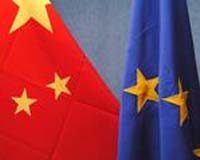| . |  |
. |
Ankara (AFP) Oct 7, 2010 NATO chief Anders Fogh Rasmussen held talks with Turkish leaders Thursday on ways to improve cooperation between the military alliance and the European Union, the Anatolia news agency reported. On arrival in Ankara, Rasmussen told reporters that EU-NATO relations would be high on his agenda, along with the alliance's upcoming summit in Lisbon as well as Turkey's contribution to Afghanistan. The NATO Secretary General will meet Foreign Minister Ahmet Davutoglu and Prime Minister Recep Tayyip Erdogan before leaving Turkey later Thursday. No press statements were planned, Turkish officials said. Turkey has been blocking closer security cooperation between NATO and the EU amid long-standing, entangled problems with Greece and Cyprus, who, for their part, have hampered Turkey's own efforts for closer ties with EU institutions. Since coming into office in 2009, Rasmussen has made the resolution of this problem a priority. Before Rasmussen's arrival, Davutoglu pledged that Ankara would work for a solution. "We are ready to work together for a solution that will take into account Turkey's position and dispel its concerns. In this framework, there are some elements that we will share with him," he said, without elaborating. Last month, Rasmussen urged EU leaders to consider "pragmatic solutions" to break the deadlock, proposing that the European bloc conclude an arrangement between Turkey and the European Defence Agency. In return, Ankara would have to recognise that all EU members participate in EU-NATO cooperation, a clear reference to Cyprus, he said. The eastern Mediterranean island of Cyprus has been divided into a Turkish north and Greek south since 1974 when Turkey invaded and occupied the island's northern third in response to a Greek Cypriot coup. The internationally recognised Greek Cypriot south joined the EU in 2004. Turkey refuses to recognise the Greek Cypriot government and instead acknowledges the breakaway Turkish Cypriot statelet in the north. The row has led Greece and Cyprus to object to any Turkish participation in the development of the European Security and Defence Policy (ESDP) while Turkey has blocked the Greek Cypriots from joining EU-NATO meetings and from taking part in ESDP missions using NATO intelligence and resources.
Share This Article With Planet Earth
Related Links Learn about the Superpowers of the 21st Century at SpaceWar.com Learn about nuclear weapons doctrine and defense at SpaceWar.com
 EU, China confess to differences
EU, China confess to differencesBrussels (AFP) Oct 6, 2010 China and the European Union admitted Wednesday to a gamut of divisive issues in efforts to seal an entente on economic and foreign policy matters. Opening a one-day China-European Union summit, both Chinese Premier Wen Jiabao and EU president Herman Van Rompuy admitted to differences of view after Wen told European leaders to back off from demands that Beijing increase the value of the yuan ... read more |
|
| The content herein, unless otherwise known to be public domain, are Copyright 1995-2010 - SpaceDaily. AFP and UPI Wire Stories are copyright Agence France-Presse and United Press International. ESA Portal Reports are copyright European Space Agency. All NASA sourced material is public domain. Additional copyrights may apply in whole or part to other bona fide parties. Advertising does not imply endorsement,agreement or approval of any opinions, statements or information provided by SpaceDaily on any Web page published or hosted by SpaceDaily. Privacy Statement |